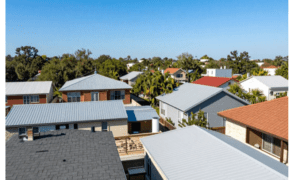5G is gradually spreading around the globe, but it’s still only around 15 percent of the world’s population who have access. The areas that have wide 5G coverage have already seen impressive advancements, setting the standards for what’s to come everywhere.
5G will completely transform the way we live and interact with the world, and it’s set to lead to an increase in smart homes and cities. Thanks to its ultra-fast connectivity, it could bring about completely integrated technological ecosystems.
People Selling Up and Moving to Smart Cities
In certain parts of the world, the smart city trend is already gathering pace. For example, Toronto has recently emerged as a leading example in the field. It began with initiatives such as the Sidewalk Labs project, which was intended to be a technology testing ground for future smart city development. Despite that particular venture never taking off, it did inspire other technology-focused communities in the city. Rather than focus on adding thousands of cameras to monitor the streets, today’s smart ventures in Toronto are more interested in sustainable designs.
Other locations such as Masdar City in the United Arab Emirates, and Shenzhen and Hangzhou in China are highlighting the potential of technology-driven cities. The latter uses a City Brain system, which improves urban management using big data and other tools. In these places, there has already been a noticeable shift in people seeking to move to take advantage of their myriad advantages.
It suggests that people in other areas expected to adopt widespread 5G should also start preparing if they are interested in getting into a smart city. Nowadays, for people who want to sell their houses, it can be done easily. There are tools online that set people up with cash house buyers, who are always ready to purchase. The process can be done in a matter of days, and this would enable people to move quickly to smart cities when they emerge in their areas.
5G and Smart Cities: Building the Cities of the Future
Smart homes have been at the center of mainstream discussion more than smart cities over the last few years, with many Western homes now featuring at least one smart device. It’s likely, though, that smart cities will soon garner the same kind of widespread attention. As 5G permeates major cities in the West, there will be surge in futuristic cities that can run smoothly using technology. Technology has evolved massively over the last two decades, and 5G feels like the final piece in the puzzle for enabling fully connected urban environments.
There are loads of real-world examples where the wonders of 5G are already being seen in action. For instance, Barcelona is one of the leading cities for smart traffic management, which incorporates 5G-enabled sensors and cameras around the city. With this information being processed instantly, it means that traffic lights can adjust dynamically to improve the flow of vehicles. There are loads of benefits to this such as the lowering of emissions and faster commuting times.
Chattanooga in Tennessee is using 5G in the city’s smart grid, which monitors energy consumption in real time. This means that utility companies can balance supply and demand more efficiently, resulting in reduced energy consumption and lower costs for residents.
5G-Enabled Public Safety
Public safety is high up on the list of matters to address in any city, and technology upgrades over the years have led to some improvements. However, there’s still crime in a lot of places, and 5G could help to stamp a lot of that out. The faster WIFI technology will lead to better monitoring of public spaces, with connected sensors and cameras working together.
There could also soon be an influx of drones patrolling busy areas to respond to incidents rapidly. This may sound like something out of a sci-fi flick, but Rome has already started to implement this form of surveillance. The tech could be particularly useful for getting to spots that are hard for people to reach and dealing with natural disasters such as floods and fires.
<iframe width=”560″ height=”315″ src=”https://www.youtube.com/embed/VRRPy-yEKRM?si=KP4PO7Q2ARCumoca” title=”YouTube video player” frameborder=”0″ allow=”accelerometer; autoplay; clipboard-write; encrypted-media; gyroscope; picture-in-picture; web-share” referrerpolicy=”strict-origin-when-cross-origin” allowfullscreen></iframe>
5G and Sustainability in Smart Cities
One of the key things that should be at the heart of every smart city is sustainability. There’s no doubt that some cities around the world function much better than others and have much lower carbon footprints because of this. 5G should level the playing field, enabling more cities around the world to become more environmentally friendly.
There are a few cities that are setting a great example when it comes to sustainability. Singapore is renowned for its forward-thinking innovations, and its 5G-powered water management is an invention that many other places will seek to adopt. Sensors monitor the flow and quality of the H2O in real time, meaning that they can detect leaks and contamination immediately. Along with improving the quality of water in the city, the advanced system also leads to better water conservation.
Copenhagen is another excellent place to look at to see how 5G can help with sustainability. The Danish capital has one of the best waste management systems in the world, with smart waste bins equipped with 5G-enabled sensors. These can monitor the fill levels of the trash containers in real time, so when a bin is full it can alert the collection trucks to come and empty it.
This incredible system means that the bins are only emptied when they need to be, reducing the instances of unnecessary trips for the garbage trucks. This, in turn, leads to lower fuel consumption and helps to cut CO2 emissions.
You may have thought that 5G was just there to make your smartphone work faster. In fact, it’s there to do so much more. When everywhere has 5G availability, it will lead to fully functioning smart cities that run more efficiently than ever before. People are likely to want to move to these places as they emerge, as they will offer much better living conditions.



































